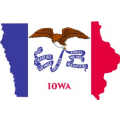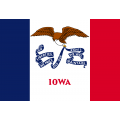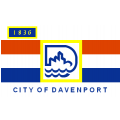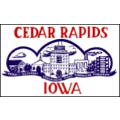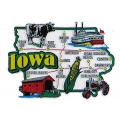Licensed practical nurses perform basic bedside care for patients and usually operate under the supervision of registered nurses for more complex medical procedures. They can also supervise nursing assistants. They are active players in the nursing profession, helping to nurture future generations of nurses while developing themselves under the guidance of more experienced professionals.
Iowa
We've organized a comprehensive list of Iowa nursing schools. Below you'll find information on specific nursing programs such as LPN certificates and ADN, BSN, and MSN degrees. You'll also find a profile of nursing education and careers in each major Iowa city.
City-specific information
An emotionally fulfilling and rewarding career, nursing provides the backbone of the healthcare industry. A nurse makes important decisions, builds relationships, and helps patients recover from illness and injury, all through a unique blend of compassion and scientific knowledge.
The state of Iowa has more than 100,000 nursing professionals. Approximately 4,000 of the state’s nurses live and work in the Waterloo-Cedar Falls metropolitan area. This number includes 2,100 registered nurses (RNs), 1,200 certified nursing assistants (CNAs), and 500 licensed practical nurses (LPNs). Many of these nurses earned their certificate, diploma, or degree at a local school.
The Quad Cities metropolitan area includes four neighboring cities along the Illinois-Iowa border, each with a population over 35,000. These four principal cities are Davenport, Iowa; Moline, Illinois; Rock Island, Illinois; and Bettendorf, Iowa. The healthcare industry in the Quad Cities metropolitan area is robust, including more than 6,500 nursing professionals. The four most common nursing roles are nurse practitioner (NP), registered nurse (RN), licensed practical nurse (LPN), and certified nursing assistant (CNA).
Iowa’s healthcare and social assistance sector comprises over 14% of the state’s employment, with more than 215,000 jobs in total. Registered nurses (RNs) hold over 30,000 of these jobs, making it the largest healthcare profession in the state. Iowa is also home to more than 20,000 certified nursing assistants (CNAs) and 6,000 licensed practical nurses (LPNs).
Des Moines is home to a large and diverse community of nursing professionals. Each nursing role carries distinct responsibilities and thus requires a tailored educational program.
Certified nursing assistants (CNAs) fill the most junior nursing role. CNA certificate programs typically require just eight to ten weeks of study. To gain licensure as a nursing assistant, candidates must pass a state-administered examination immediately after completing the certificate program.
Aspiring nurses in Cedar Rapids have several nursing schools and programs from which to choose. The local nursing profession can be broadly divided into four roles: certified nursing assistant (CNA), licensed practical nurse (LPN), registered nurse (RN), and advanced practice registered nurse (APRN).
After several years of service, many nurses with a baccalaureate education choose to advance their careers by entering a specialized nursing vocation. Iowa offers over 20 master of science in nursing (MSN) programs that enable existing nurses to enter advanced fields such as nursing administration, nursing education, and family practice nursing.
The BSN programs offered in Iowa focus on two target groups: aspiring nurses preparing for initial licensure and existing nurses seeking to earn a bachelor’s degree. With a greater emphasis on increasingly well-trained and qualified nurses, there has been a marketplace shift favoring nurses with a bachelor’s degree. BSN graduates thus gain enhanced stature in the registered nursing community.
ADN programs focus on allowing participating candidates to attain initial registered nurse (RN) licensure. Registered nurses form the bulk of the country’s nursing profession and hold a variety of responsibilities. These include administering healthcare activities directly and supervising more junior nurses like nursing assistants and licensed practical nurses. RNs are the backbone of the healthcare structure in the US.
Licensed practical nurses perform basic bedside care for patients and usually operate under the supervision of registered nurses for more complex medical procedures. They can also supervise nursing assistants. They are active players in the nursing profession, helping to nurture future generations of nurses while developing themselves under the guidance of more experienced professionals.

